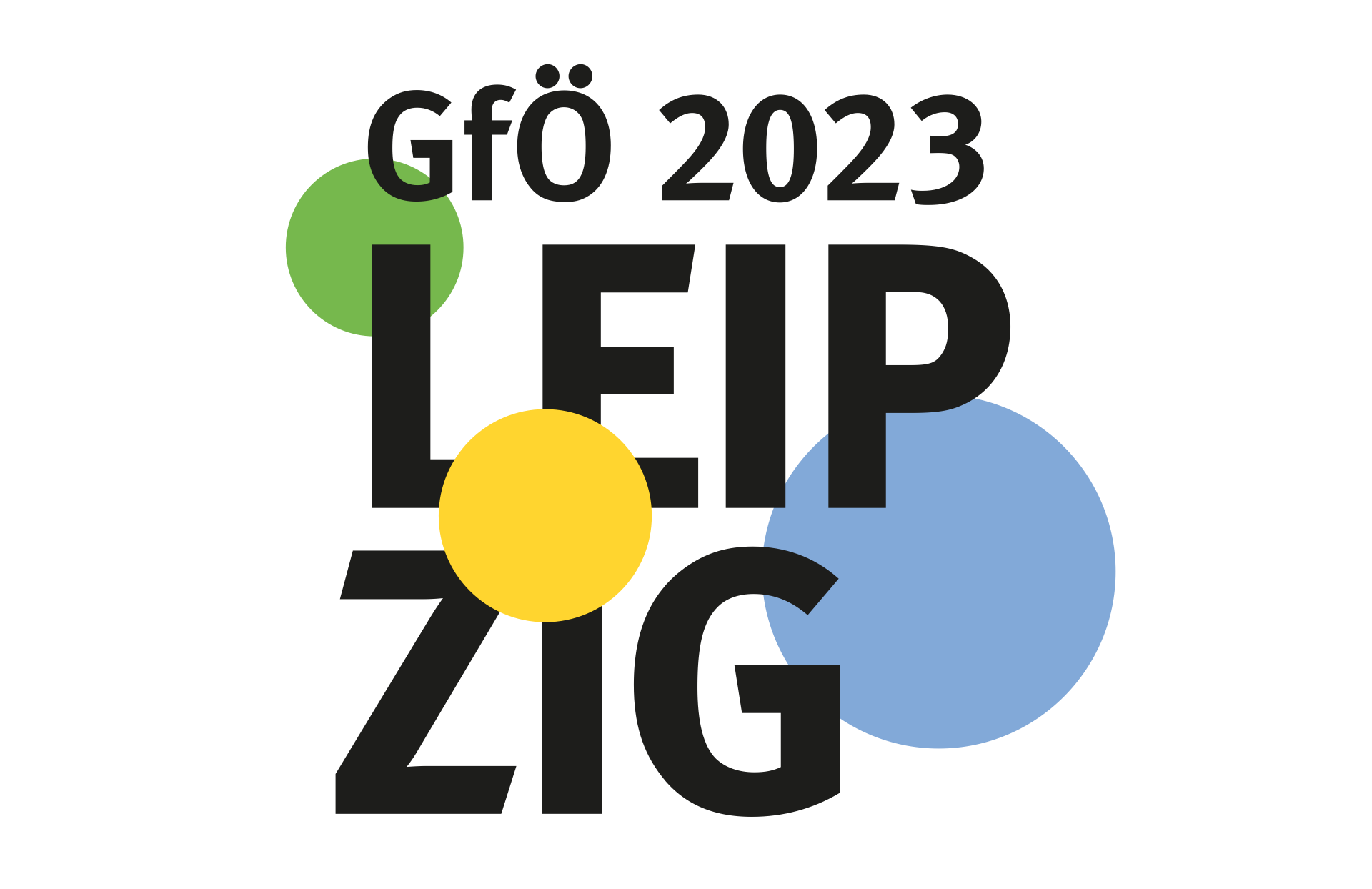NFDI4Biodiversity at the GfÖ Annual Meeting 2023
Organisation: Ecological Society (GfÖ)
As one of the most important annual events of the biological community, NFDI4Biodiversity contributes several workshops and sessions to the 52nd Annual GfÖ Meeting. A list of all the programme items we are involved in can be found at the bottom of this page.
About the conference
The Ecological Society of Germany, Austria and Switzerland (GfÖ) is excited to announce the 52nd Annual GfÖ Meeting on 12-16 September 2023 in Leipzig. Join ecologists from across the world for a vibrant conference hosted by the German Centre for Integrative Biodiversity Research (iDiv) Halle-Jena-Leipzig.
The next years will be dedicated to developing strategies to implement the 2030 Biodiversity vision and goals of the Convention of Biological Diversity to foster a healthy, resilient and biodiverse planet. For this, we need to better understand how biodiversity change can be detected across time and space, how it supports ecosystem functioning and people, and how biodiversity can be conserved and enhanced in the long term. We therefore hold the 52nd GfÖ Annual Meeting under the motto "The future of biodiversity – overcoming barriers of taxa, realms and scales" to shed light on future challenges and opportunities with regards to biodiversity, as well as how to address and manage these in an interdisciplinary and integrative way.
The organizing committee warmly welcomes you to the 52nd GfÖ Annual Meeting and encourage you to join this interdisciplinary, lively platform for inspiring exchange with scientists from a broad range of ecological disciplines and beyond.

Bitte geben Sie Ihre Mastodon-instanz an
NFDI4Biodiversity at the GfÖ Annual Meeting 2023
-
Get to know NFDI consortium for biological, ecological and environmental data at the information stand, which will be open throughout the conference.
-
About
Are you performing research on biological material that came from outside Germany? Are you familiar with the legal requirements surrounding use of international biological diversity? If not, this workshop is for you! Attendees to the workshop will have a better understanding about ABS, their obligations under the Nagoya Protocol, new tools for compliance, and an update of the international discussion on benefit-sharing from DSI.Detailed information about the workshop can be found here.
Speakers
Melania Muñoz García (Leibniz Institute DSMZ), Amber Scholz (Leibniz Institute DSMZ), Scarlett Sett (Kiel University), Ellen Frederichs (BfN), Meike Teschke (DFG), Débora Raposo (GFBio e.V.) -
About
Biodiversity monitoring has recently gained importance as it becomes increasingly apparent that developing and tailoring biodiversity policy and management requires better data. This symposium will be the opening of a thread of sessions covering different aspects of biodiversity monitoring.Detailed information about the workshop can be found here.
Chairs
Henrique Pereira, Birgit Gemeinholzer, Wiebke Sickel, Vamsi Krishna Kommineni, Christophe Dominik, Michael Beckmann, Sebastian T. Meyer, Patrick Mäder -
About
Systematic and statistically meaningful time series data on biodiversity are essential in developing efficient conservation strategies, especially to implement field-level data to policy. Yet such data is vastly unavailable for most species or from most parts of the world. Here, we aim at bringing together researchers and practitioners to discuss the use of regional biodiversity data from structured monitoring and opportunistic recordings, and ideally, time series data to inform conservation management and action.Detailed information about the workshop can be found here.
Chairs
Martin Friedrichs-Manthey, Lina Lüttgert, Shawan Chowdhury, Thore Engel -
About
In the first section, we will teach the basics of research data management for ecologists across the whole data life cycle. Section two will then focus on the “first step” in the data life cycle – planning a research project and the posterior publication of heterogeneous data via our submission system. This section addresses the importance of a data management plan with practical examples and how to prepare your data for publication/archival. In the last section, we will share our experiences in the consortium NFDI4Biodiversity and offer insight into one of the tools/services provided by our partners.Detailed information about the workshop can be found here.
Speakers
Daniel Tschink, Jimena Linares, Claas-Thido Pfaff, Ivaylo Kostadinov (all GFBio e.V.) -
About
Scientific infrastructures of Research networks and platforms are an integral component of the scientific landscape, especially within Biodiversity and ecological research. The National Research Data Infrastructure for Biodiversity (NFDI4Biodiversity) proposes this session to give an overview about several of these infrastructures, the relevant data they work with, the tools they provide for handling and analysing data, as well as other organisations and services they interact and network with.Detailed information about the workshop can be found here.
Speaker
Christoph Schomburg (Kassel University) -
About
In the age of global change there is an urgent need to continuously track the status of ecosystems in order to watch the development and related impact on functions and processes in the long run. However, gathering long-term biodiversity data is mostly out of scope considering the usual run time of projects. This issue is addressed by networks focusing on long-term ecosystem research like the international ILTER (https://www.ilter.network), the building of the European research infrastructure and NFDI4Biodiversity Use Case eLTER (https://elter-ri.eu) and national networks like the German LTER-D (https://lter-d.de) which are dedicated to create, combine and analyse long-term ecosystem research data. In this session we will open the floor for people presenting studies based on already established time series and those which recently started but are intended to run for a long time. Studies combining historical with recent data are welcome as well. Presenters are expected to demonstrate the relevance of their work considering (long-term) perspectives of communities and ecosystems. If you dare, you may even give an outlook for the future development and consequences based on the insights of your study.Detailed information about the workshop can be found here.
Chairs
Mark Frenzel, Jörg Müller